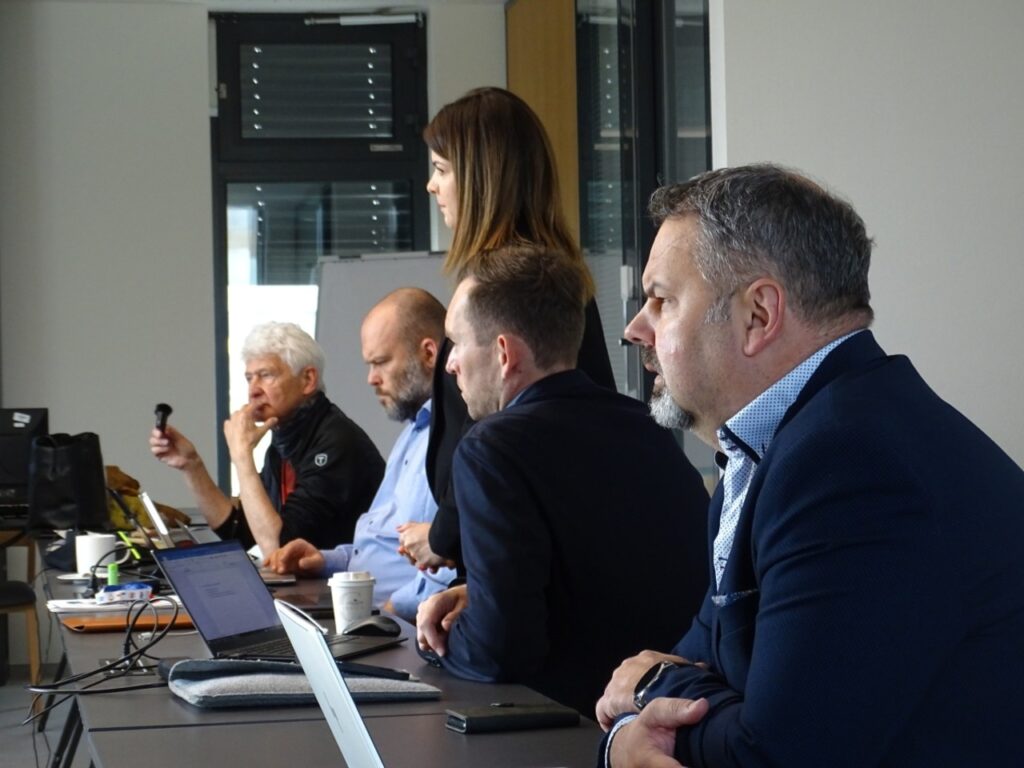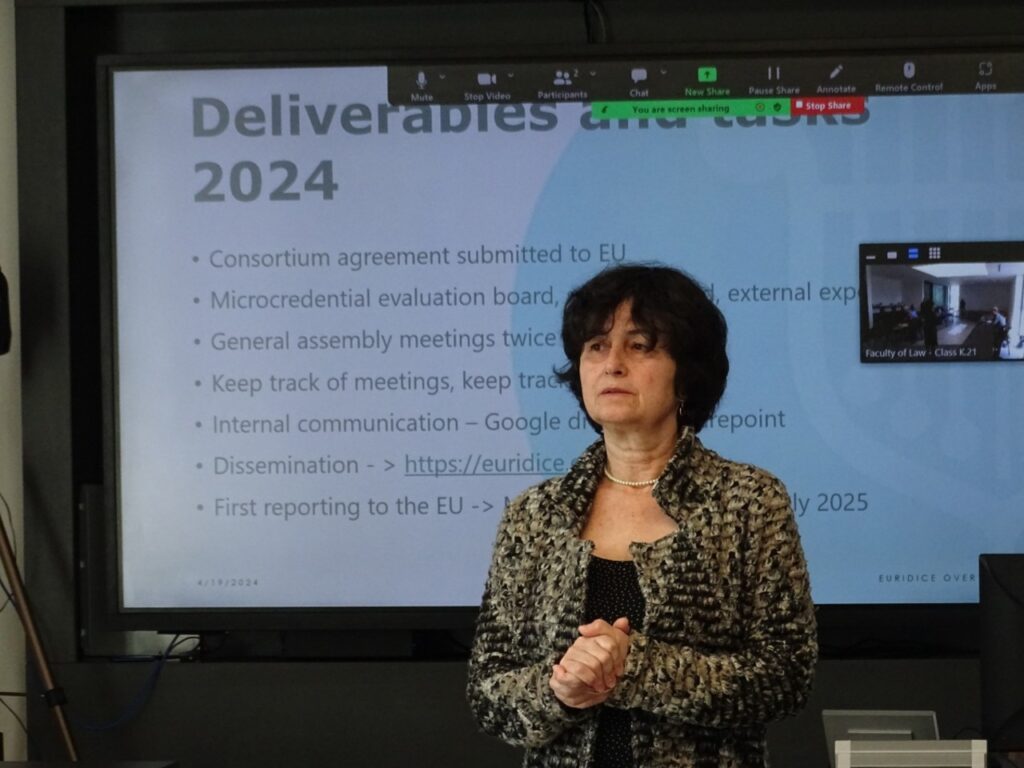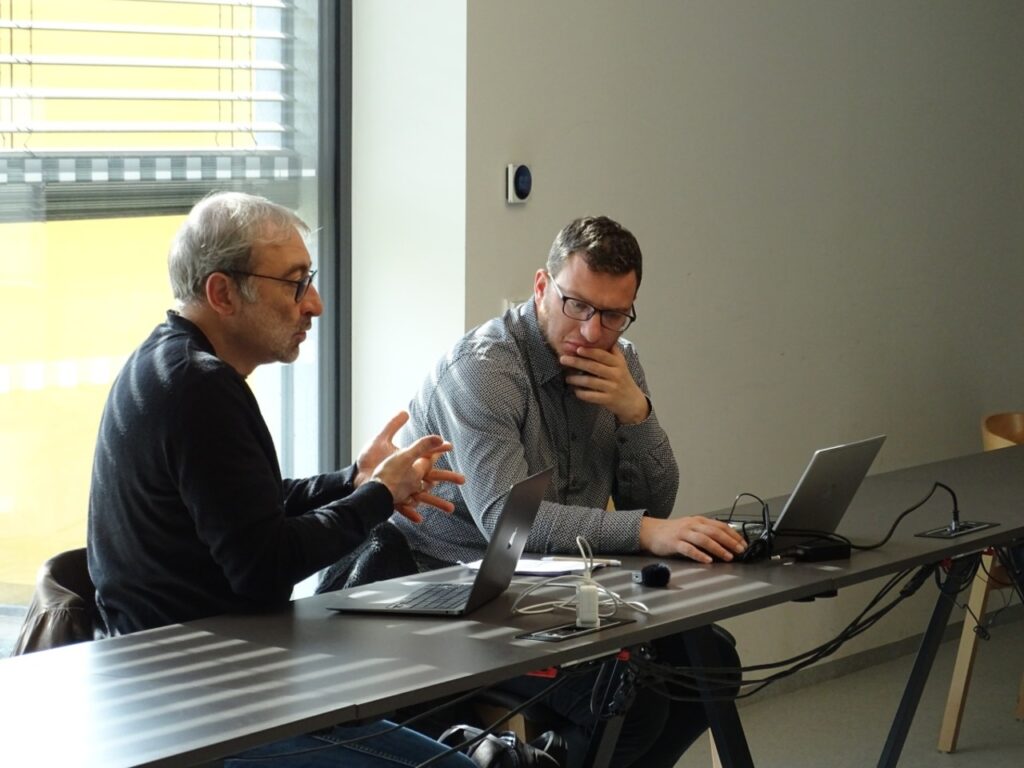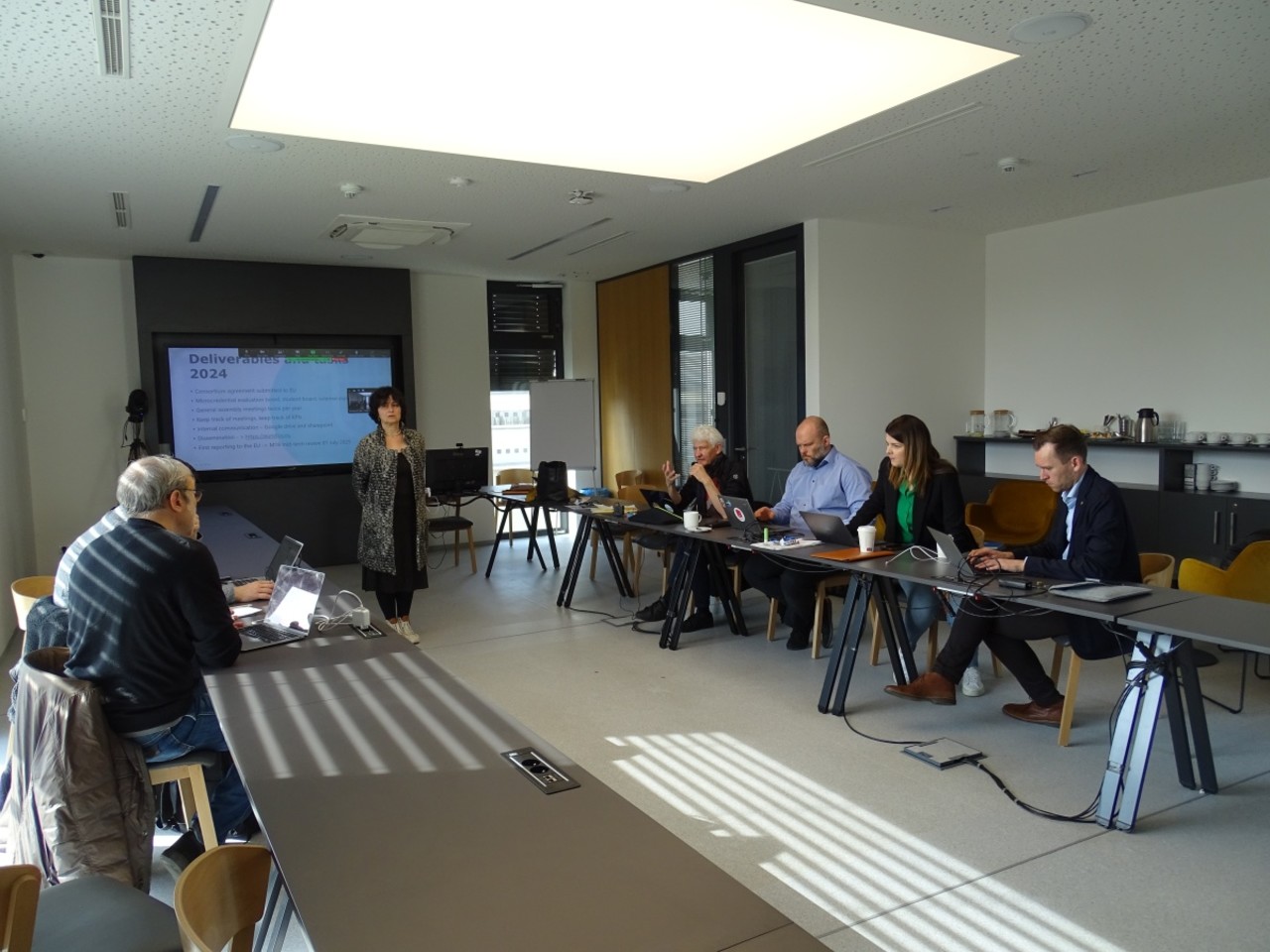Olomouc, 24 April 2024 – A new international study programme is being prepared.
Text and pictures are by Michal Zych, Olomouc, 24 April 2024 – translated from the original Czech article.

EURIDICE’s Joint European Master’s programme on Digital Society, Social Innovation and Global Citizenship, which will start its teaching in September 2025, will equip students with advanced digital skills, legal knowledge and related social knowledge. The curriculum is currently being co-created, thanks to the collaboration between Palacky University Olomouc, the University of Naples, the University of Innsbruck and various other European institutions within the EURIDICE project, a project in the framework of the EU’s Digital Europe Programme.
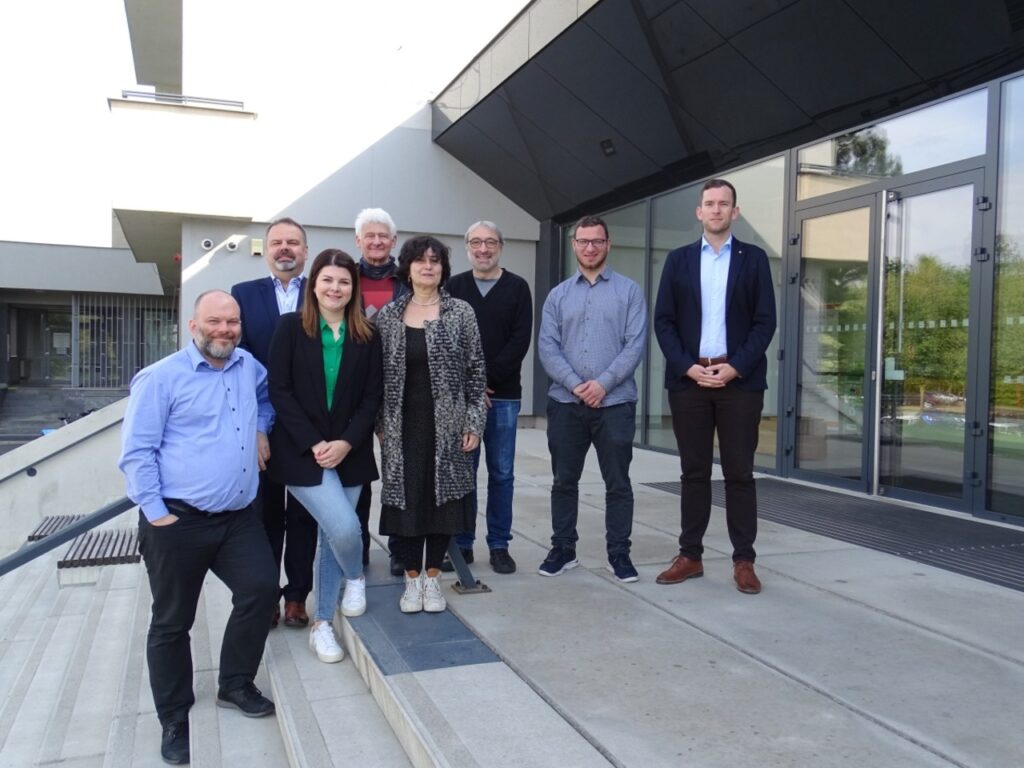
Participants of the workshop at the entrance of the Law Faculty, picture by Michal Zych.
From 17-19 April 2024, the representatives of these institutions met at the UPOL Faculty of Law, which is one of the contributing faculties to the design and deployment of this new joint study programme. Aim of the workshop was to give it a concrete outline and content.
“Our goal is that its graduates, who will hold high positions in business, politics or society, will have advanced skills and knowledge to have a deep understanding of the issues and challenges of the digital society. So they will, for example, understand what artificial intelligence is and how it works, and at the same time perceive its impact on society,” explains Anna Bon, the project’s main coordinator, from VU Amsterdam.
The joint study programme will be taught in English in a combined presential and hybrid format. Students will thus gain knowledge from the best experts from several universities; however, other higher education and research institutions and small & medium enterprises are also involved in the project. They will offer practical internships and contribute to trainings.
“Most universities have a focus, so it can be difficult for them to prepare a broadly focused interdisciplinary study. Linking several institutions allows us to get the best experts in ICT, law and philosophy together for one study programme,” says Hans Akkermans from AKMC, one of the companies involved in the EURIDICE project.
“Our university will involve experts in statistics and data science or sociology, for example,” explains Emiliano Grimaldi, coordinator for the Euridice project at the University of Naples Frederick II. One of the key topics of the three-day meeting at Palacký University is therefore the composition of the interdisciplinary team of teachers. “Together, we also defined the topics they will address and, most importantly, the target outcomes and competences that the graduates of the programme should master,” adds Anna Bon.
The EURIDICE project was officially launched on 1 January 2024 and will run until December 2027, thanks in large part to the existing network of European universities in the Aurora Universities Alliance, which also targets, through its pilot domains, Digital Society & Global Citizenship. “The emerging programme can be said to be a spin-off of the Aurora 2030. The consortium captures the essence of what the collaboration is meant to deliver – to transform higher education and society through education,” says Thomas Baumgartner of the University of Innsbruck.
The project initially started as a joint training module, but has gradually evolved into a comprehensive master’s degree programme, which brings increased demands on technological support as well as accreditation processes. “We have used the European Commission’s Digital Europe Programme to partially secure funding. In the future, we will seek to involve all Aurora partner universities,” notes Michal Malacka, UP Vice-Rector for Strategy and External Relations.
“We are very proud to be a part of this project as Palacký University and the upcoming prestigious study programme, which involves very hard-working academics and experts. Our team consists of academics from the Faculty of Arts and the Faculty of Science, but is administratively supported by the Aurora Office of the UP Rectorate. The international educational activities are not only beneficial for UP, its reputation and prestige, but also, and most importantly, they promote multicultural exchange, the development of intercultural, professional and personal competences, and inspiration and mutual enrichment,” says Markéta Šemberová, coordinator of the EURIDICE project and Aurora Education Developer.
Maxim Tomoszek, Vice-Dean of the Faculty of Law at UPOL for Bachelor’s and Master’s degree programmes, adds: “For the Faculty of Law, this is a synergistic activity to the already accredited doctoral programme Law and Digital Technologies, and at the same time a unique opportunity to cooperate with top international institutions. Working together on the programme structure, module objectives and graduate profile is very inspiring.”
